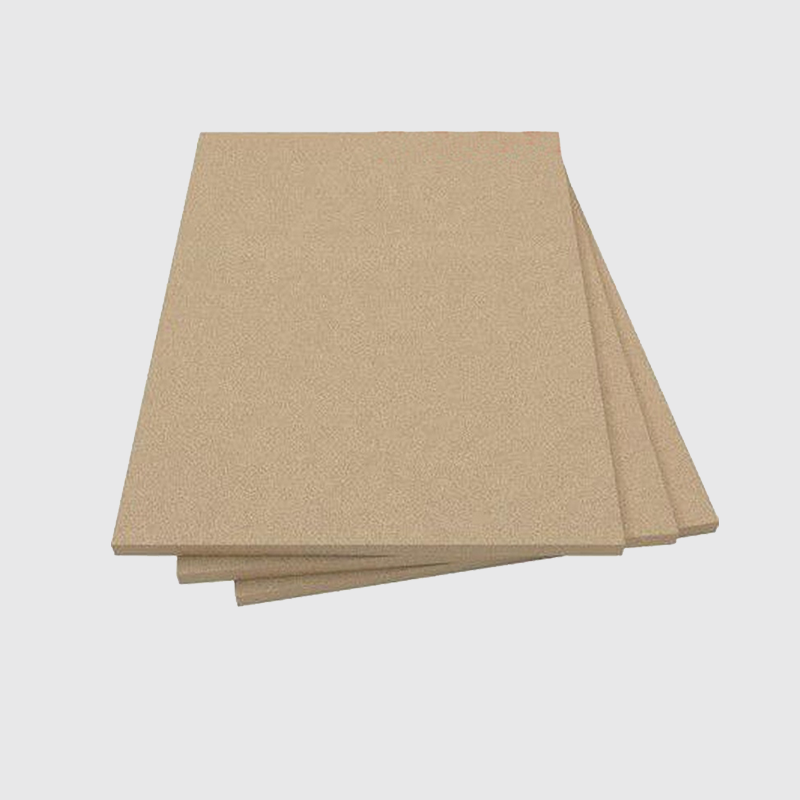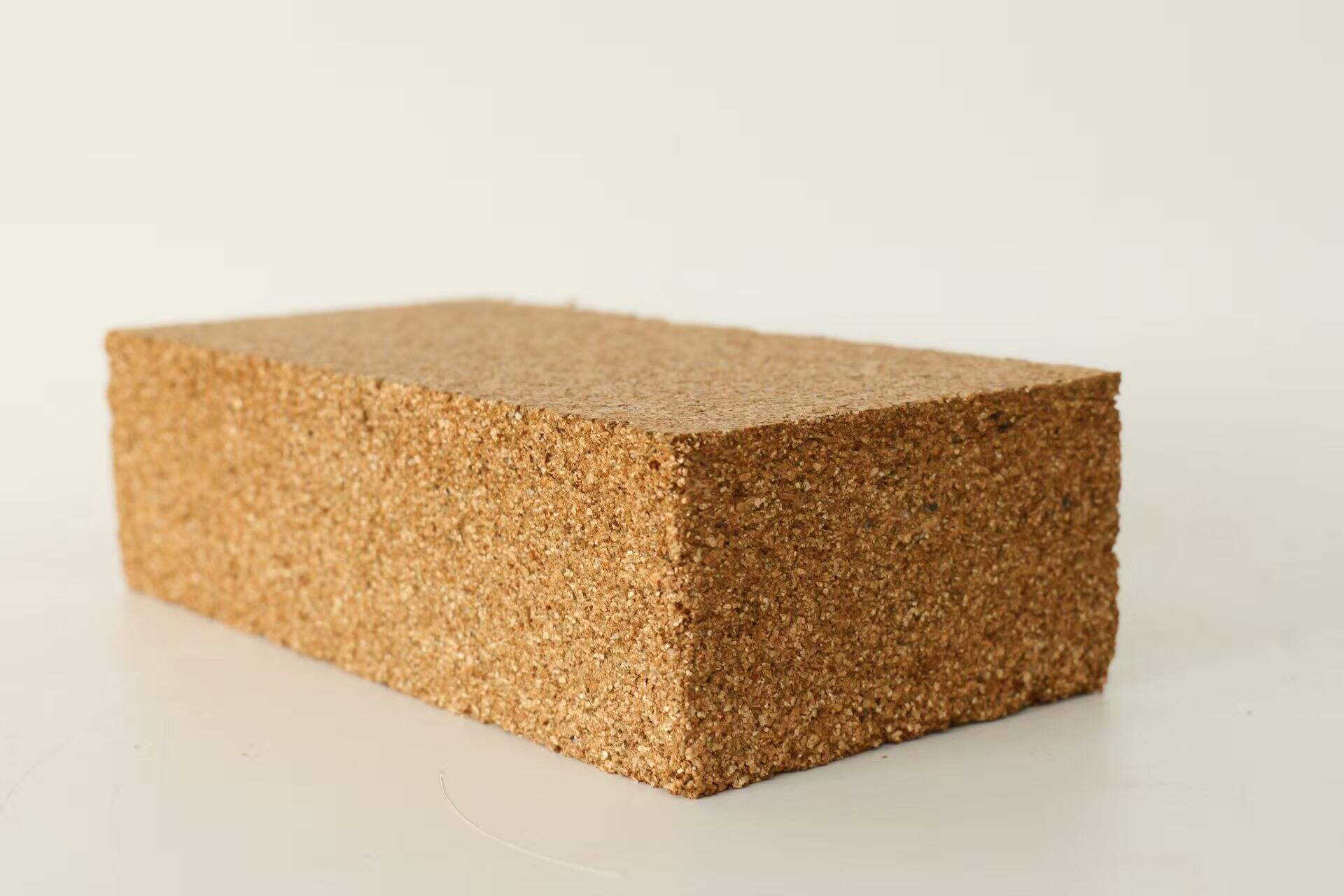The Science Behind Vermiculite Fireproof Boards
Mineral Composition and Expansion Process
Vermiculite is a mineral known for its unique composition and expansion properties, which make it ideal for high-temperature insulation products. Originating from the hydration of volcanic glass, it is rich in magnesium and aluminum. These components contribute to its ability to expand significantly when subjected to temperatures around 1000°C. During this heating process, vermiculite undergoes exfoliation, where its layers separate to form lightweight and low-density particles. This exfoliation vastly improves the mineral's thermal efficiency and its utility as an industrial insulation material. In various industrial applications, vermiculite boards are often preferred for their superior thermal insulation features, offering efficiency and reliability.
Thermal Shock Resistance Mechanisms
The remarkable thermal shock resistance of vermiculite boards stems from their inherent layered structure. This structure allows the material to rapidly absorb and dissipate heat, making it resilient to sudden temperature changes. Research indicates that materials like vermiculite can endure substantial thermal stress without cracking or degradation, thereby outlasting many conventional insulation materials. This resilience is crucial in industrial environments where unexpected temperature fluctuations are frequent. Consequently, vermiculite boards are not just favored for their insulative properties but also for their role in enhancing fire safety applications, providing a reliable solution in challenging thermal conditions.
Key Performance Characteristics
High-Temperature Endurance up to 1200°C
Vermiculite fireproof boards are remarkable for their ability to withstand temperatures up to 1200°C, effectively safeguarding against extreme heat conditions. This exceptional characteristic ensures structural integrity, which is essential in preventing fire hazards, particularly in industrial settings such as metal processing facilities. Specific studies have illustrated that vermiculite-based insulation retains its physical and chemical stability even at elevated temperatures, guaranteeing long-term high-performance. This makes vermiculite an ideal choice for high-temperature insulation products and applications in industrial environments.
Chemical Resistance to Cryolite and Fluorides
Vermiculite boards possess impressive resistance against corrosive chemicals like cryolite and fluorides, enhancing their suitability for use in harsh industrial settings. The inertia of vermiculite avoids chemical reactions that could potentially degrade the insulation, promising both longevity and reliability. Industries such as aluminum production, where chemical exposure is common, particularly benefit from this property. This chemical resistance positions vermiculite as a preferred material for insulation solutions that require contact with aggressive substances, making it an industrial insulation material of choice.
Eco-Friendly and Non-Toxic Construction
Crafted from natural minerals, vermiculite fireproof boards offer an eco-friendly alternative that aligns with sustainable construction practices and are free from harmful substances. Unlike synthetic materials, vermiculite does not emit dangerous VOCs (Volatile Organic Compounds), thus promoting better indoor air quality. The non-toxic nature of vermiculite makes it a sought-after insulation option in both industrial and residential buildings, and the use of these boards supports efficient and environmentally responsible construction methods. Utilizing these boards aids in achieving higher sustainability in the building sector while ensuring safety and reliability.
Industrial Applications of Vermiculite Insulation
Aluminum Electrolysis Cell Protection
Vermiculite insulation plays a crucial role in aluminum electrolysis cells, which are subjected to extreme temperatures and chemical exposure. By offering superior thermal insulation and resistance to corrosive chemicals, vermiculite boards significantly enhance the efficiency and safety of these operations. Studies by industry experts underline vermiculite's capability to extend the lifespan of electrolysis components, safeguarding them from harsh environmental conditions. This application is particularly relevant for enhancing operational efficiency and reducing maintenance costs in the aluminum production industry.
Fire Door Cores and Building Safety Systems
Vermiculite boards are essential in fire door core applications, providing enhanced fire resistance while preserving structural integrity. These fireproof panels adhere to stringent safety regulations, effectively preventing the spread of flames and smoke in buildings. As reported by various safety standards, vermiculite-based fire safety systems have successfully reduced the occurrence of fire-related incidents in architectural structures. By integrating vermiculite in building safety systems, architects can ensure comprehensive fire protection and occupant safety.
Furnace Linings in Metal Processing
As a lining material for furnaces, vermiculite offers exceptional insulation properties crucial in high-temperature metal processing applications. Its thermal stability under extreme heat conditions enables the protection of equipment and reduces energy costs considerably. Experts recommend vermiculite for its outstanding durability and thermal performance, making it an ideal choice for modern metal processing plants striving for efficiency. By reducing downtime and maintenance needs, vermiculite contributes significantly to optimizing industrial operations and enhancing productivity.
Premium Vermiculite Fireproof Board Products
Vermiculite Fireproof Insulation Board
Vermiculite fireproof insulation boards are an essential choice for applications requiring top-tier thermal protection and fire resistance. These boards come in various thicknesses, allowing customization to fit specific structural needs while maintaining adherence to safety standards. According to market analysis, there is an increasing demand for these boards across multiple industries, reflecting a heightened focus on safety and fire resistance. As industries strive to meet safety and compliance standards, vermiculite boards stand out for their versatility and efficacy in maintaining safety.
Medium Density Insulation Brick for Electrolytic Cells
Medium-density vermiculite bricks are designed specifically for electrolytic cell applications, offering substantial thermal insulation and dimensional stability. Their design helps in minimizing heat loss, which in turn supports energy efficiency in industrial processes such as aluminum smelting. According to recent research, incorporating medium-density bricks can significantly enhance operational performance and lead to cost reductions over time, making them a prudent choice for industries looking to optimize energy consumption and efficiency.
High Density Vermiculite Brick
High-density vermiculite bricks offer exceptional mechanical strength and thermal resistance, making them ideal for heavy-duty applications in metal processing industries. Their robust construction is well-suited for lining furnaces and kilns, environments characterized by prolonged exposure to high temperatures. Industry feedback consistently highlights that high-density vermiculite bricks surpass many traditional materials in terms of durability and longevity, affirming their relevance in modern industrial applications where durability is paramount.
Fireproof Insulation Board (500 Density)
The fireproof insulation board with a 500 density is engineered for applications demanding reliable fire protection and thermal insulation. It ensures low thermal conductivity while upholding fire-resistance properties, making it highly suitable for sectors like construction and manufacturing. Data from buyer reviews indicate a growing trend in using 500 density boards, especially in high-risk areas, underscoring their significance in contemporary safety standards and practices.





